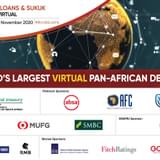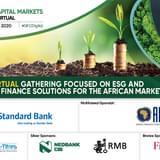Sub-Saharan African sovereigns have been almost completely absent from the Eurobond markets since the beginning of 2016, with only South Africa accessing the markets with a US$1.25bn transaction in April.
“The pipeline has been exceptionally dry over the last 6 months, in the past we typically saw a gap of three months between issuances,” said Nema Ramkhelawan-Bhana, Africa Analyst at Rand Merchant Bank.
Despite a quiet pipeline, SSA sovereigns are still looking to tap the international markets as it is cheaper than accessing onshore funding where interest rates are often double-digit.
However, the interest in Eurobonds has been complicated by the fact that their framework has changed.
“African issuers need to have a very well thought out prospectus before going on a roadshow, and need to demonstrate what the funds will be used for over a specific period of time.”
As a result of the drop in oil prices, investors have become more cautious in their investments and heavily scrutinise potential transactions, which has contributed to a slowdown in Eurobond issuance.
“Ghana’s last Eurobond was achieved at a steeper cost than had been anticipated and so drew wide coverage,” said Jonty Levin, Partner at Alkebulan.
Ghana had been planning another Eurobond, but has recently opted for a syndicated loan instead, as the country would not be able to afford the yields demanded by investors, which have in the past been upwards of 12%.
Levin added that the current round of financing would likely be similarly costly and the government would probably wish for this to remain ‘below the radar.’
Loan syndications have been successful in Africa as they spread the risk and are therefore easier to market to an international lending base.
They tend to be preferred to bonds across the continent with Angola, Ghana and Mozambique all having raised funds in the loan markets in recent years.
Despite the preference for the loan markets, the secrecy that comes with them can hinder a sovereign’s relationship with its investor community.
“The lower level of public visibility associated with other forms of investment instruments can give rise to later surprises, such as the recent revelation of Mozambique’s borrowings which were previously not disclosed,” Levin noted.
Despite the increased openness of a Eurobond, Nigeria is looking to tap the markets with such an instrument to fund a pressured budget deficit caused by low oil prices.
Ramkhelawan-Bhana noted that Nigeria, along with Kenya, has been more willing than most Sub-Saharan African sovereigns in diversifying its financing options through Eurobonds amongst other debt instruments.









